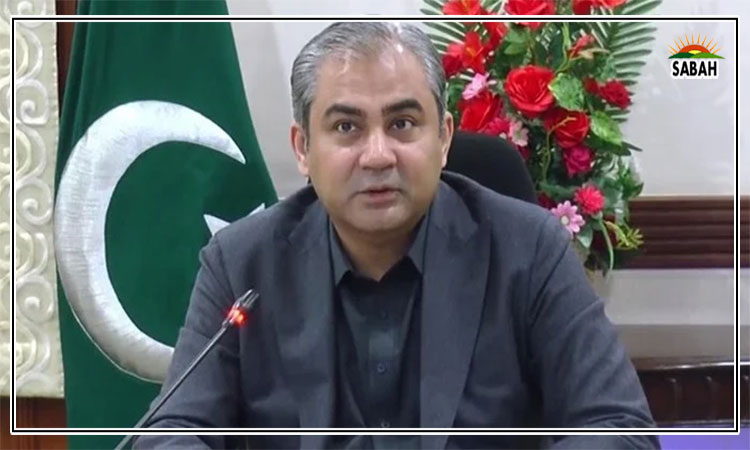Literature hostage to the elite…By Sasha Javed Malik
There was a time when literature throbbed with the heartbeat of the people, a time when the pens of writers shook empires, exposed social inequalities and sparked revolutions.
Literature was not a commodity – packaged, marketed and sold in a system that prioritises spectacle over substance – but a lifeline, roped to the struggles of workers, peasants and marginalised communities.
The revolutionary fervour that dominated literary circles now seems to be disappearing very fast. Literary spaces are now dominated by elite-organised festivals, state-sponsored, and corporate-funded platforms that have commercialised what was once a tool of resistance. Recent ‘spring’ literary festivals and biennales in Pakistan reflects autumn on literature.
In a society torn apart by class inequality, literature too reflects this divide. Once rooted in the experiences of everyday people, literature has now been hijacked by the elite. The privileged dominate literary festivals and book launches, while writers from marginalised backgrounds struggle to gain visibility.
The streets and fields may be bursting with poets and storytellers who entwine the words of resilience and pain, but their work rarely finds its way into mainstream literary discourse. Instead, the literary spotlight remains steadily fixed on a limited cast – mostly urban, opulent and English-speaking writers whose lives and concerns bear little resemblance to those of the majority. Year after year, we see the same familiar faces on every panel, reinforcing the exclusivity of these spaces.
This is not a coincidence. It is a symptom of a deep neoliberal system that values economic wealth and privilege, as well as marketability above authentic diversity. Literature, once a mirror of society’s struggles, has become an ornament of the elite, a badge of cultural capital rather than a force for social change.
This divide is deeply ideological. The progressive literary movements that once flourished in Pakistan have been replaced by an arid, apolitical literary culture.
In the past, literature challenged power. It questioned imperialism, critiqued capitalism and amplified the voices of the oppressed. Today, much of what passes for ‘intellectual’ literature stays safely within the bounds of acceptability, avoiding uncomfortable truths that might upset sponsors, institutions or the state.
Even when marginalised voices are included, they are often tokenized, invited to speak but not to challenge. Writers who critique corporate power, state violence or class exploitation are excluded, while those who conform to elite tastes are celebrated. This ideological policing ensures that literature remains subdued, polished, and politically neutral, devoid of the radical energy that once made it a medium for change.
One of the most visible signs of this literary elitism is the dominance of the English language in Pakistan’s literary spaces. Attend any major literary festival, and you will notice the imbalance: English-language books and discussions take center stage.
This linguistic hierarchy is not accidental. It reflects the colonial legacy that equates English with sophistication, intellect, and cultural superiority. But it also reinforces class divisions, honouring those who have had access to elite education while marginalising the voices of rural poets, regional storytellers and labour writers who create in their native tongues.
The result is a literary culture that is increasingly disconnected from the realities of the majority. The stories of poverty, displacement and resistance that are being written in local languages remain largely invisible to the mainstream, overshadowed by English-language narratives that cater to elite audiences.
Literary festivals and corporate-sponsored platforms often market themselves as spaces for free thought, open dialogue and intellectual exchange. But in reality, these spaces are tightly controlled. Discussions on social justice may take place, but they rarely cross the line into truly radical territory.
The boundaries of acceptable discourse are carefully policed and channeled. Conversations that challenge systemic power, whether by addressing labour exploitation, state censorship or imperialism, are either diluted or excluded altogether. Instead, we see an overemphasis on issues such as sexual politics.
This is not to diminish the importance of gender and sexual equality, but to highlight the selective nature of these conversations. The voices of workers, peasants and other marginalised groups are missing, and with them, the possibility of a truly transformative literary culture.
Perhaps the most treacherous aspect of this literary capture is the growing nexus between literature, academia and institutional power. Awards, grants and publishing opportunities are often tied to academic credentials, with PhD professors and elite intellectuals dominating the field.
The English departments of universities, once pivotal spaces for shaping progressive discourse, have now become disconnected from social realities. Instead of engaging with the lived experiences of the majority, they have become inward-looking spaces, circulating the same elite discourses, ideas and theories limited to text and linguistic interpretation.
These departments now function as gatekeepers of literary and intellectual production, determining what kinds of literature are considered valuable, which themes are worthy of exploration, and which voices deserve to be heard. The knowledge they produce reflects institutional interests more than the concerns of society at large.
This institutionalisation of literature has created a closed circle, where literature has become a subject to be studied, theorised, and dissected – rather than lived, experienced and created by those outside these institutions.
True literature cannot be tamed. It cannot exist solely in the sanitised spaces of literary festivals, universities and corporate book launches. It must break free from these structures and return to the people.
The challenge for writers, readers, and activists today is to break down the barriers that divide literature from the people it is meant to serve. To create spaces where true free thought can flourish. And to ensure that literature remains not just a mirror of society’s struggles, but a force for change.
COURTESY THE NEWS












